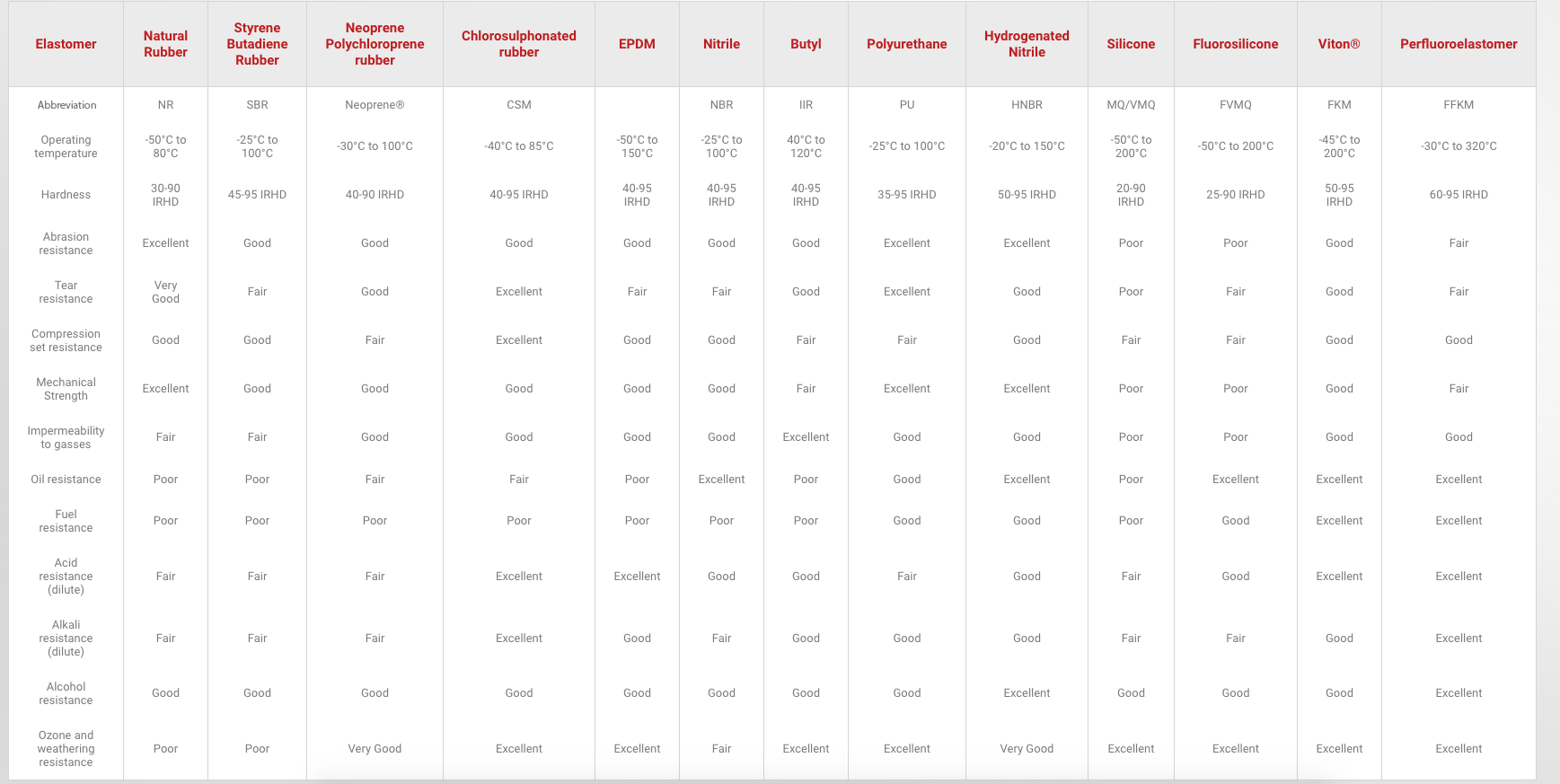What is Neoprene used for?
Neoprene is a synthetic rubber that is famously the material of choice for wetsuits. What you may not know is that the numerous favourable properties of neoprene – such as excellent tear strength, thermal stability and resistance to oils, solvents, ozone, UV and oxidation – make this versatile material a useful choice for a wide range of industrial applications too.
What is neoprene?
Neoprene is actually the generic DuPont brand name for the polychloroprene family of synthetic rubbers. Developed in 1930 by DuPont scientist, Arnold Collins, Neoprene is produced by polymerising chloroprene to produce polychloroprene chips that are subsequently melted and mixed with foaming agents and carbon pigments to create sheets of neoprene. It was developed in response to the rising demand for rubber in the 1920s.
What are the properties of neoprene?
Neoprene predominantly comprises carbon and hydrogen atoms and offers excellent resistance to oils, solvents, ozone, UV and oxidation. Further favourable properties of neoprene include its durability, tear resistance, and its ability to adhere to metals and fabrics. Neoprene rubber offers good thermal stability and can operate in temperatures from -30°C to +100°C. Some compounds of neoprene are also flame resistant.
Typical neoprene uses
As we’ve mentioned, Neoprene is versatile. As such, it is used in many different products. It is used in gaskets and hoses because it takes longer to degrade than natural rubber. Its flame resistance sees it employed in weather stripping for fire doors. Neoprene is also a popular choice of material for gloves and face masks. But perhaps its best-known commercial application is in wetsuits, thanks to its waterproofing and insulating properties.
Other common Neoprene uses include:
- Wire and cable insulation
- Belts
- Springs
- Flexible mounts
- Gaskets
- Adhesives
Contact TRP Polymer Solutions today
Here at TRP Polymer Solutions, we use a range of Neoprene materials to formulate our high-performance rubber moulded products. For example, our P158 compound is a black Neoprene with a shore hardness range of 56-65 IRHD that is specially formulated to conform to BS2752 C60. Our P165 compound is a white, general-purpose Neoprene with a shore hardness of 70-60 IRHD that is an excellent choice for a range of chemical applications.
Our experienced technical experts can support you with your material selection. We will listen carefully to your requirements and provide the best possible solution for your needs. We will ensure your rubber moulded components are engineered from the most appropriate and highest-quality Neoprene for the specific parameters of your application, and can provide a full turnkey solution from design through to production.
Make TRP Polymer Solutions your custom moulded rubber manufacturer of choice. To find out more about our high-quality polymer products and manufacturing processes, or to discuss your requirements in more detail, please contact TRP Polymer Solutions on +44(0)1432 268899 or sales@trp.co.uk.






